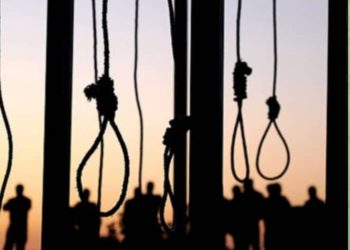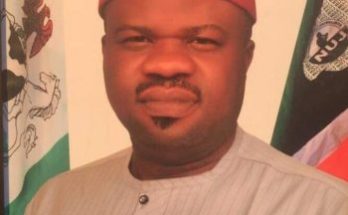Suicide, a global phenomenon is yet to wane despite legal sanctions and decriminalisation in some countries. KEHINDE OSASONA gives more insight.
Matters arising
Since ancient times, suicide, a self- inflicted injury with a fatal outcome has reportedly been part of human history.
In no fewer than 20 countries, suicide is a crime. But that approach has not been enough to eliminate it.
According to the World Health Organization (WHO), about 700,000 suicides occur across the globe every year. The report added that for every completed suicide, there are at least 20 unsuccessful attempts.
Also another research findings show that about 79% of suicides occurs in low- and middle-income countries compare with high income countries, where it appears higher.
Although the constitution of the Federal Republic of Nigeria does not criminalize suicide, but it clearly stipulates punishment for cases of attempted suicide.
Section 327 of the Criminal Code Act in Southern Nigeria states: “Any person who attempts to kill himself is guilty of a misdemeanor, and is liable to imprisonment for one year.
In the same vein, section 231 of the penal code, Northern Nigeria, asserts that: “Whoever attempts to commit suicide and does any act towards the commission of such offence shall be punished with imprisonment for a term which may extend to one year or with fine or with both.”
Significantly, these sections of the constitution clearly imply that anyone who attempted to take their own life but failed is a criminal in the eyes of the law and is liable to be jailed.
However, the constitution does not provide any remedy or solution for the avoidance of suicide such as mental health examination or rehabilitation.
The loophole in the constitution has consequently triggered NGOs, medical experts, stakeholders and other concerned Nigerians, Who have continually called for decriminalisation of suicide in the country.
Despite the criminalization of attempted suicide in Nigeria, the rate of suicide according stakeholders and experts is still considerably high. It was put at 6.9 per 100,000 of the population in 2019. The figure translates to roughly 7,019 people a year, which is less than the average global rate of 9.0 per 100,000.
But in spite of the fact that data generated so far ranks Africa and Nigeria low globally, the blight for some concerned stakeholders is still worrisomeThe concerns, efforts
Nigeria it would be recalled is among the African countries committed to the WHO Mental Health Action Plan 2013-2030 which aimed at reducing mortality rate by suicide under the Sustainable Development Goal (SDG 3.4.2), some stakeholders are still worry that the country is currently ranked the 15th most suicide–prone nation in the world and 7th in Africa.
Speaking exclusively to Blueprint on the issue, the Founder/President Mandate Health Empowerment Initiative (MHEI), Mr Ameh Abba Zion attributed high rate of suicide globally to state of mental health and policy defect.
According to Ameh, millions of people are grappling with mental health challenges which are marked by a long-standing culture of silence and stigmatization, forgetting that it could eventually led to suicide, a criminal offence according to Nigeria law.
He said years of neglect and lackluster approach have led to suicide or an attempted suicide in some cases.
“In the last year and a half, suicide has been decriminalized in four countries: Ghana, Malaysia, Guyana, and Pakistan, which advocates claim is a sign of increased knowledge and comprehension of mental health.
“We must therefore learn from these countries, continue advocating the repeal of laws criminalizing suicide, and replace them with legislation that emphasizes mental health support and intervention,” Ameh, who is also the Convener Association of Mental Health Reform Organizations in Africa, AMHROA, Network stated further.
Also speaking, The Chief Executive Officer, Caridad Charity Foundation Mrs Adedoja Folakemi while dwelling on the issue called for a re-orientation and legislation to douse the tension.
According to her, people need to be comfortable discussing mental issues devoid of any form of discrimination.
“I want to urge the government and all stakeholders to come up with solutions and while doing that should interface with skit makers on social media. These set of people could through their arts help translate campaigns and awareness via all Nigerian languages. So, aside from community sensitization, counseling, embracing empathy can also go a long way.” Adedoja said.
For Khadijat Shuaib, a gender advocate at Almajiri Child rights Initiatives, solutions to spate of suicide and by extension mental health challenge or disability in the country is long overdue.
“Panic attack, if you must know, is a mental disability but most people don’t know. So, it is more like we are all prone to mental health challenges in one way or another. “Worst still, there is no health insurance for mental health and I think there should be a discounted rate to help stem the scourge.
“Government for me should first proffer solutions to mental health challenges and parley with organizations working towards creating awareness and all that.” Shuaib said.
Going forward
Legal position is that suicide is not a crime but attempted suicide is, according to Section 327 in the Criminal Code Act.
But while giving more insight, a Senior Advocate of Nigeria (SAN), Mohammed Tajudeen Mohammed once described suicide as a criminal offence in both customary and Islamic laws in Nigeria.
A psychologist and program officer, MHEI, Precious Anslem, said mental health, which often leads to suicide, has come to stay, but can be managed for individual to operate at maximal level.
He said: “For somebody to get to a point in life where life no longer holds meaning or they no longer want to live is critical and it is a state of emergency.
“Such persons for me need help and interventions and not jail terms.
“Our goal as advocates of suicide decriminalization is to not having people result to attempting suicide in the first place. If I am depressed and there is an avenue for me to seek help, I won’t think I would want to commit suicide. I wouldn’t seek help and if the government throws me an intervention, I can bounce back and contribute meaningfully to society.”
Advocating further, a journalist, Ali Ndo, called on the media to amplify the conversation around mental health issues in Nigeria.

“The mental health Act of 2021 is still there but a lot don’t even know about its existence let alone tapping into its key provisions. We need to let people know what is in it for them.
“Again, it is very critical for the country to decriminalize suicide in Nigeria. Nobody wants to deliberately take his or her own life.” Nbo said.
Is respite here?
Meanwhile, relief may have come the way of mental health advocates and agitators as the federal government recently promised to review the law imposing sentencing for suicide attempts.
The Attorney General of the Federation and Minister of Justice, Prince Lateef Fagbemi, SAN, gave the promise when he received a delegation from the Asido Foundation, a non-governmental organisation
Health, according to the AGF, is one of the priority areas of the administration of President Bola Ahmed Tinubu.
“The law is something we have to take a second look at, especially where it is established that the offenders are not in the right state of mind. What the offenders need is pity, treatment and love so as to rid society of this kind of situation.
“But whatever we do is not binding on the states. So, I will take the case to the Body of Attorneys General,” Fagbemi said.




